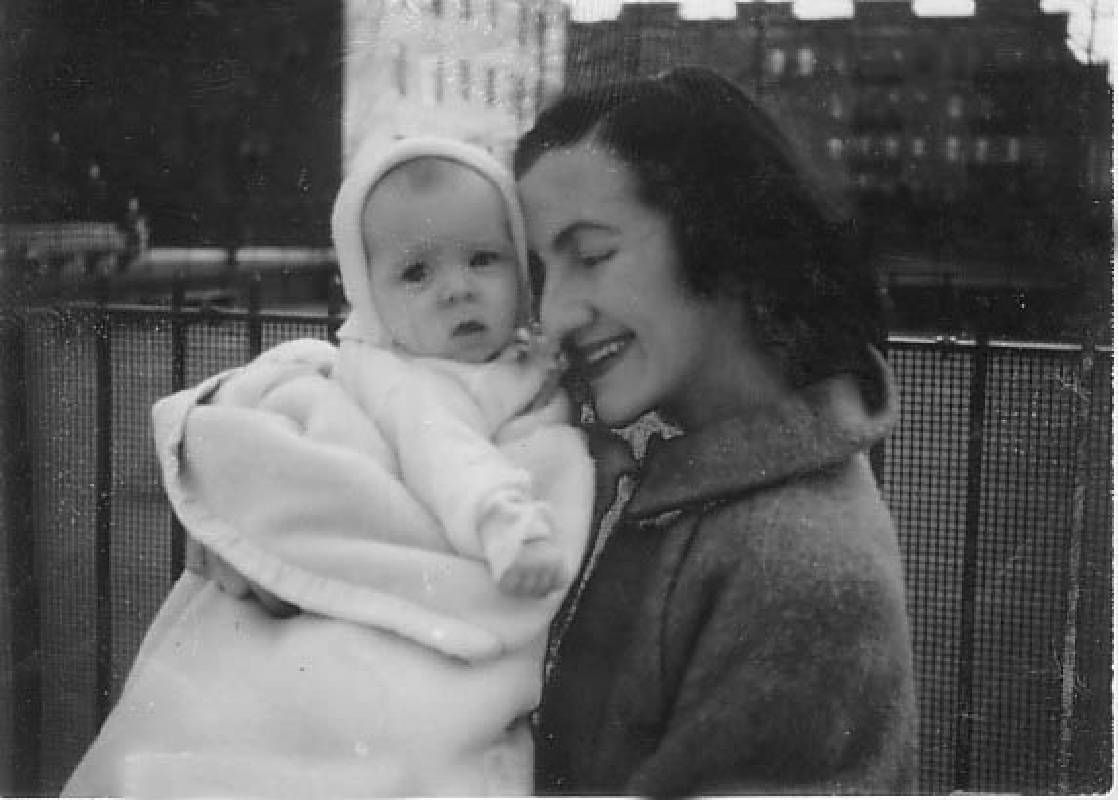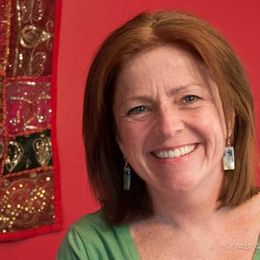My Mother, My Grandmothers, Myself
When I became a mother at 27, I had a mental checklist of do's and don'ts based on my observations of the most important women in my life
When I was a young teenager, I spent a lot of my time daydreaming about my sure-to-be-fabulous future. Those were the days when every door was still open to me, or so it seemed. I would get my pilot's license. I would become an ace reporter for a major newspaper. I would live in a gorgeous old house in the south of France (which I would purchase with my huge reporter's salary, and to which I would travel in my private plane). The possibilities were endless, and endlessly exciting.

During those teen years, I also assumed that I had complete control of my character traits, and could easily assemble the perfect person, living the perfect life. I did realize that some of my qualities were very similar to those of my parents and grandparents, but surely, I could pick and choose only the best ones.
Unlike my mom, I would be the epitome of tidiness, and my kids would never be embarrassed to have friends over to a messy house.
My mother and grandmothers were all amazing women, with totally different personalities. My sisters and I grew up with an affectionate and chatty mother who treated us as her friends, in a chaotic environment of unmade beds, undone dishes and overflowing ashtrays. Mom's mother, my Grandma, had a quick Irish wit and a sharp tongue, and could be very impatient and critical. We knew she loved us, but we were a little afraid of her, too.
Three Women, Three Personalities
Dad's mom, Nana, was the sweetest and softest person I'd ever known. Nana never raised her voice, or said an unkind word about anybody. Another word she couldn't seem to say was "no." Nana spoiled us, her three granddaughters, rotten.
When I became a mother myself at age 27, I had a mental checklist of do's and don'ts based on my observations of the most important women in my life. I felt if I could just study them, I'd know how to avoid every pitfall. Unlike my mom, I would be the epitome of tidiness, and my kids would never be embarrassed to have friends over to a messy house.
I would overcome my own tendency towards sarcasm, because I knew Grandma's criticisms had damaged Mom's self-esteem. I would never let my offspring walk all over me, as Nana had let us do; I recalled our very rude awakening later, when the outside world didn't coddle us, and I was determined that would not be my children's fate.
But this mothering thing wasn't working out quite the way I planned. I struggled to keep up with the disorder of five kids under age 10, often unsuccessfully. I found myself snapping at the children, and, yes, being pretty sarcastic at times. There were exhausting days and nights when I took the easier path of indulgence, with later bedtimes, fewer chores and more junk food for my offspring.
During those early years of motherhood, I tried hard to suppress the unlovely traits that were clearly second nature to me, courtesy of Mom, Grandma and Nana.
Part of My DNA
What was wrong with me? I knew better. I'd seen the problems caused by the very behaviors I was now exhibiting. During those early years of motherhood, I tried hard to suppress the unlovely traits that were clearly second nature to me, courtesy of Mom, Grandma and Nana.
It took decades for me to give up the notion that I could, with enough self-discipline, totally discard the less than stellar facets of my personality. Like them or not, they were part of my DNA, and they were bound to crop up from time to time, despite my best efforts. I had to come to terms with the good, the bad and the ugly on my family tree.
Eventually, I found a level of cleanliness and order that was achievable in a big and busy household. I learned to channel that quick wit, and take a deep breath when my temper flared. I forgave myself for giving in to the kids occasionally, when rules were relaxed, and extra ice cream served.
As I evolved, I could begin to recognize and celebrate the many positive parts of my mother and grandmothers that are also present in me. Mom's warmth. Grandma's intelligence. Nana's giving spirit. I inherited, every person inherits, a mixed bag of traits from our ancestors — along with others that are unique to each of us. I was always afraid of being a horrible role model for my kids if any of my flaws were evident. Now I see that it is a better thing to be an honest role model.
In so many ways, I am a blend of them all. I am making my peace with every bit of that blend.
It's not that simple, I know. The "nature vs. nurture" conversation continues, as geneticists and psychologists try to unravel the mysteries of why we grow to be the people we are. Am I similar to my family more because of the environment in which I was raised, than because of my cellular resemblance to them? Is it possible for someone's personality to completely change over time? Just recently, a theory has emerged that it is personality traits themselves that help determine our genetic makeup, and not vice-versa.
But I maintain, however our characters may be formed, the strong influence of family is unmistakable. My now-grown offspring sometimes act just like me, and their grandparents, at our worst. When that happens, I don't panic, or conclude that I've failed them. And I hope they get the message that they haven't failed themselves. Because, inside their mixed bags, there are also large amounts of humor, much generosity and extravagant love — our family at our best.
As another Mother's Day approaches, I look in the mirror at my aging face. There is Grandma's fair Irish skin, Nana's blue eyes and Mom's expressive mouth. In so many ways, I am a blend of them all. I am making my peace with every bit of that blend. And I am learning that this interconnectedness among the generations is more than inevitable. It's beautiful.


